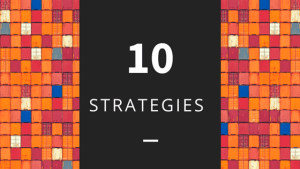ADHD, ADHD Symptoms, Anxiety, Connecting, Depression, Strategies for ADHD

Maybe.
This might not be the answer you want to hear. ADD/ADHD, Anxiety or Depression manifest in different ways. There’s no definite and absolute answer when working with children and adolescents. However, what I will say that is absolute, is the love you have for your child and their love for you.
Help Our Children Manage Their Emotions
A child, like us, have good days and bad days. It is your job as the parent to remain calm when they are out of control. I know this is easier said than done.
However, as the adult we are the ones responsible to help them understand and learn to manage their emotions. We create a safe place for them to do that.
As an adult, it’s easier to tell when we’re stressed, worried or sad. We can use our words. We have options to help ourselves. We go for a walk. We talk with a friend. We even take some time out.
Children are not this self-aware. They don’t understand what, why or how about their emotions. Much less how to react. A child knows how to scream, cry or call out for you when something doesn’t feel right.
Be Aware Of How ADD/ADHD, Anxiety or Depression Manifests
But when they’re hurting emotionally, the pain inside is inexplicable to them. They only know how awful it feels so they act out on that pain. This can manifest itself in so many ways.
- Tears
- Throwing things
- Not eating
- Loss of sleep
- Isolate
- Become clingy
- Problems come up at school
- Lack of energy
- Increased worry
- Loss of interest in their hobbies
- Overly engaged
Noticing your child’s behavior is very important.
It is up to you to identify if the behavior is part of their developmental growth, ADD/ADHD or another physical reason. Look at how often this behavior comes up. The intensity of the behavior. These are cues.
Create a Safe Place
When you’re talking with your child, it is critical you create a safe place. Do you stay with them? Or sometimes an adolescent may be left alone to calm down.
Are you talking to them at their level? If not, drop down to your knees and hold direct eye contact.
You want to create a connection with love and respect. This creates safety and trust.
Accountability, ADHD, Strategies for ADHD

Any one of these ADD/ADHD Strategies can positively impact the lives of anyone living with ADD/ADHD.
Start Small
Starting small and experiencing success is vital. Every inch of your accomplishments becomes an inch of actual emotional growth. You’re building mental muscles by doing “reps” just like a bodybuilder develops washboard abs.
Start Easy
A parent can demonstrate to a child how putting the dirty clothes in the hamper is the first step to having a clean room. Or an adult can gather the monthly bills and have the necessary tools handy to pay the bills. Find your easy first step.
Create Your Space
To create a new habit, you must have a designated place for what you want to accomplish. A writer surrounds him or herself with an area that is both inspirational and conducive to recapturing their inspiration. It may have to be private. In these cases, it’s okay to temporarily “banish” people, pets or cell phones to another room. Having this space will develop your self awareness and help you appreciate the way good habits play in your success. This is what we mean when we compliment someone on being a true professional.
Break it Up
Remember the schoolyard joke, “how do you eat an elephant?” Answer: one bite at a time. Move forward in small doable tasks.
Set a Due Date
Establish a specific date and time for the task to be over and done with. Write it down. Refer to it as needed. This is why God made Post-It Notes. Remember, be kind – don’t nag yourself. Use your accountability calendar.
Keep The Goal Alive
Remember what you are aiming at. What specifically are you trying to accomplish? Whatever it is, it is one more facet of a shining gem that will reflect a more capable and confident you.
Visualize
What? When? How are you doing it? Sometimes an odd detail will flesh out your plan of action. Maybe it’s picturing the steam rising from your soothing cup of tea that solidifies your next move.
Provide Accountability
Have a coach or a friend serve as an accountability partner to provide support and encouragement. They will ask powerful questions and help you delineate ways to stay focused. The right people respect your dreams and desires. They will work to help you fulfill them.
Avoid Distractions
There are so many distractions that can steer you off course. Pay attention to the negative influence of “harmless” social distractions such as surfing the net, chatting mindlessly on the phone, binge-watching TV, exploring every level of a new game or being lured away by non-stop party people.
Be Thoughtful
Once you’ve started and your brain is activated, stop and celebrate what you’ve accomplished. If you fell like continuing with the task, then keep going. If you stop, make sure you set the next date and time to continue working on the project.
ADHD, Executive Functions, Goals, Strategies for ADHD

A hill is just a hill
The parents of children with ADHD are all-too-familiar with phrases like “It’s boring” or “It’s too hard” or “I don’t like it.” As adults, these same children come to realize that society will unflinchingly demand certain tasks of us, and slightly modify their complaints to phrases such as “It’s so hard to get started” or “It‘s late and I can’t find the time” or “I’m not really motivated to complete it.”
Narrow Your Focus
With ADHD every molehill tends to become a mountain. A big aspect of learning to cope with ADHD is taking care to not magnify the workload that is actually before you. Otherwise you risk being told “That excuse only works once – now your job is on the line.”
Narrow your focus. A hill is just a hill. If you were already on top of it, you would be thinking how wonderful it would be to surrender to a childlike urge and roll down it. Visualize the joy that is waiting for you at the top. Revel in the breathless anticipation of launching yourself into the rewards that await you.
Climbing that hill might seem like an obstacle course; there are so many things to avoid! Distractions, negative thoughts, emotional diversions … so let’s talk about the strategies that will help you conquer your personal “IT.”
Activate the Brain
A difficult step for individuals with ADHD is engaging the brain so that it completes a task
Imagine making a cup of tea. You have to find a clean cup, choose the tea, and prepare the hot water (either by kettle, boiling it on the stove, or zapping it in the microwave). Once the hot water is ready, pour it in the cup, add the tea, sugar, lemon.
Yes, most people are lucky enough to handle routine tasks on “automatic pilot.” But you know you’re not most people. With ADHD and possible deficits in your Executive Functions, you won’t process information and follow steps like everybody else. Accept, forgive, allow for extra time, and be patient with yourself.
Knowing all the steps and organizing them is the key to managing an activity
You may visualize them as a list, clearly printed in black and white. Or you may think more like a mapmaker, planning your movements from one section of the kitchen counter to the next. Experiment and determine how your thoughts “move”- do they go down a list, climb up a ladder, or move in a sideways shuffle?
Whatever works, incorporate that into your game plan. You’re not lazy or unmotivated. You just want a cup of tea before your toast and eggs get cold. It’s not too much to ask of a waiter in a restaurant. And it’s just that. Sometimes you have to be your own waiter. And, here, a delicious breakfast is going to be your tip. (Amazing how a task worth doing to YOUR satisfaction stops being a hill.)
Avant-Garde has a free worksheet in our Resources and Downloads called, Activating The Brain to help you with this strategy.
Get Started
What’s needed? A structure that provides a routine that is repeatable. How do you build this foundation? Understand which ADHD symptoms manifest in your actions. Know how to take charge and manage your symptoms when they arise.
Taking Charge
Taking charge means:
- being accepting of who you are
- understanding the weaknesses in your Executive Functions
- identifying your support system
- making a commitment to yourself
- creating an accountability system
- planning
- being persistent

New Behaviors. New Hills To Climb
Fortunately, there will be a moment in your life when either you or your child will no longer have to consciously “think” about the structure because it is ingrained so deeply that it has replaced the behaviors that seek to divide you.
ADHD Symptoms, Coaching for ADHD, Diagnosis of ADHD, Executive Functions, Strategies for ADHD
Are you like the millions of other adults who have a full schedule and are regularly challenged by symptoms of ADHD? If so, then constant distraction, procrastination, and poor time management are among the obstacles you face daily.

What’s happening?
While one area of your life might be managed very well (by using all of your energy to stay focused), other areas are drastically affected and suffer. Everyday social relationships can become so painful that you find yourself with no hope, desperate and aching to do something, anything, different.
Diagnosis of ADHD
For starters, don’t try to diagnose yourself. “ADHD is a misunderstood diagnosis even in the modern age,” says Dr. Anthony Rostain, MD.
Not only can ADHD symptoms mimic other disorders, ADHD can also co-exist with those same other disorders. Only by sorting through these sneaky partnerships can you choose the best, most effective, treatment for you.
Rostain, “There are a lot of myths and skepticism that want to cast doubts on the validity of the diagnosis”. CHADD, the leading national organization for Children and Adults with Attention Deficit Hyperactivity Disorder, maintains a website that both validates ADHD is a real disorder and provides evidence that it can be treated effectively. It will help you dispel the myths and silence the skeptics.
A clear diagnosis will pinpoint the troublesome symptoms that are unique to you.
Many of these symptoms are centered in an area of our thoughts labeled as “Executive Functions.” Executive Functions (EF, for short) form the governing body of the average human mind. EF involves your brain’s ability to absorb, process, and interpret incoming facts and then make a decision on how best to proceed.
(more…)





